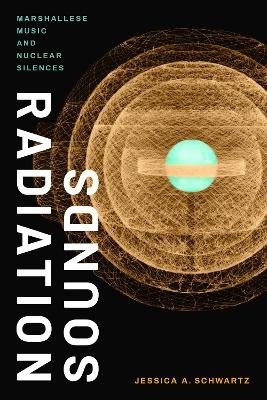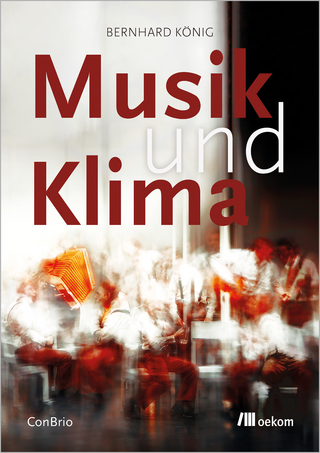
Radiation Sounds
Marshallese Music and Nuclear Silences
Seiten
2021
Duke University Press (Verlag)
978-1-4780-1368-6 (ISBN)
Duke University Press (Verlag)
978-1-4780-1368-6 (ISBN)
Jessica A. Schwartz examines the seventy-five years of Marshallese music developed in response to the United States’ nuclear weapons testing on their homeland, showing how Marshallese singing practices make heard the harmful effects of US nuclear violence.
On March 1, 1954, the US military detonated “Castle Bravo,” its most powerful nuclear bomb, at Bikini Atoll in the Marshall Islands. Two days later, the US military evacuated the Marshallese to a nearby atoll where they became part of a classified study, without their consent, on the effects of radiation on humans. In Radiation Sounds Jessica A. Schwartz examines the seventy-five years of Marshallese music developed in response to US nuclear militarism on their homeland. Schwartz shows how Marshallese singing draws on religious, cultural, and political practices to make heard the deleterious effects of US nuclear violence. Schwartz also points to the literal silencing of Marshallese voices and throats compromised by radiation as well as the United States’ silencing of information about the human radiation study. By foregrounding the centrality of the aural and sensorial in understanding nuclear testing’s long-term effects, Schwartz offers new modes of understanding the relationships between the voice, sound, militarism, indigeneity, and geopolitics.
On March 1, 1954, the US military detonated “Castle Bravo,” its most powerful nuclear bomb, at Bikini Atoll in the Marshall Islands. Two days later, the US military evacuated the Marshallese to a nearby atoll where they became part of a classified study, without their consent, on the effects of radiation on humans. In Radiation Sounds Jessica A. Schwartz examines the seventy-five years of Marshallese music developed in response to US nuclear militarism on their homeland. Schwartz shows how Marshallese singing draws on religious, cultural, and political practices to make heard the deleterious effects of US nuclear violence. Schwartz also points to the literal silencing of Marshallese voices and throats compromised by radiation as well as the United States’ silencing of information about the human radiation study. By foregrounding the centrality of the aural and sensorial in understanding nuclear testing’s long-term effects, Schwartz offers new modes of understanding the relationships between the voice, sound, militarism, indigeneity, and geopolitics.
Jessica A. Schwartz is Associate Professor of Music at the University of California, Los Angeles.
Acknowledgments ix
Introduction: "It Was the Sound That Terrified Us" 1
1. Radioactive Citizenship: Voices of the Nation 41
2. Precarious Harmonies 83
3. MORIBA: "Everything Is in God's Hands" 131
4. Uwaañañ (Spirited Noise) 170
5. Anemkwōj 211
Notes 253
Bibliography 273
Index 287
| Erscheinungsdatum | 18.10.2021 |
|---|---|
| Zusatzinfo | 21 illustrations |
| Verlagsort | North Carolina |
| Sprache | englisch |
| Maße | 152 x 229 mm |
| Gewicht | 567 g |
| Themenwelt | Kunst / Musik / Theater ► Musik ► Musiktheorie / Musiklehre |
| Geisteswissenschaften ► Geschichte ► Regional- / Ländergeschichte | |
| ISBN-10 | 1-4780-1368-0 / 1478013680 |
| ISBN-13 | 978-1-4780-1368-6 / 9781478013686 |
| Zustand | Neuware |
| Informationen gemäß Produktsicherheitsverordnung (GPSR) | |
| Haben Sie eine Frage zum Produkt? |
Mehr entdecken
aus dem Bereich
aus dem Bereich
Grundbegriffe, Harmonik, Formen, Instrumente
Buch | Softcover (2021)
Philipp Reclam (Verlag)
7,80 €
kreative Lösungen, nachhaltige Praktiken und inspirierende …
Buch | Softcover (2024)
oekom verlag
36,00 €


